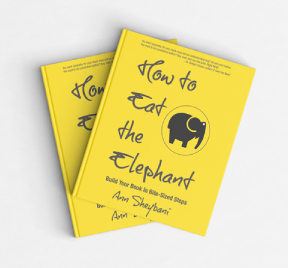Writing
Where To Go When You’re Blind
September 4, 2017
At last, your book manuscript is done. Or so you think. And hope. Please, God, let it be so, you whisper to no one in particular.
Unfortunately, you’ve been looking at the same arrangement of words for so long, you don’t know if you’ve created a best seller, or a semi-polished mound of crap. Without the necessary distance, it’s hard to trust your own judgment. And it’s not like your cat can read over your manuscript and give you useful feedback, even if it would like to.
When you’re convinced that you’ve done all that you can do, when you’re chomping on the bit to get your book published, whom can you turn to, who can save you from your own impatience and/or enthusiasm?
When I came out of writing school, my classmates and I often analyzed each other’s work. One of us would mail her completed piece to the others, then wait a month or two for the package to be returned with a list of problems and recommendations spelled out in red ink. This editorial process took a very long time to complete, but we knew that if we did it for one, the favor would eventually be returned in kind. More importantly, we respected each other’s opinions and skillsets, having witnessed them in writing workshops. We weren’t just pals who’d met in some seedy bar.
Which leads me to my next point: Don’t ask your hairdresser, or your best friend from third grade, or your Aunt Earleen to analyze and critique your manuscript. Unless they work for Simon & Schuster, they likely won’t be particularly discerning or useful.
Even if you’re blessed with writing buddies, don’t hand them a 300-page manuscript to edit unless you can return the favor, or promise them one of your kidneys as payback. Have respect for others and their time, and have respect for your work.
It may be time to hand your manuscript over to a professional.
Editing professionals—and we’re going to talk about some of the different types in a moment—get paid to study your manuscript, point out problems, and, sometimes, offer corrective suggestions. Unlike your mother or girlfriends, these are people who’ll have no trouble telling you the cold, hard truth.
If you’d like to avoid the embarrassment and shame associated with publishing ca-ca, I can’t recommend the editing process highly enough. As the old credit card commercial states: Editing services? A few hundred bucks. The truth? Priceless!
There are primarily two types of editing services in the publishing world. The first is holistic editing. The second is copy editing.
Just as holistic medicine considers the whole person—body, mind, spirit, and emotions—in the quest for optimal health, holistic editing considers the whole manuscript—structure, flow, style, and tone—with an eye for soundness and readability.
Holistic editors look for the gaps that need filling, scenes that need chopping, and themes that need supporting. They notice if that important character mentioned in the first chapter disappears for two hundred pages, only to magically reappear. They spot the breaks in the narrative perspective, the dialogue that sounds stilted, and the need for backstory. They read for redundancies, inconsistencies, and believability. You get my drift.
Unlike holistic editors, copy editors will go through your manuscript line by line. These are the folks who’ll fix your punctuation, grammar, and spelling. A writer may be skilled at explaining a procedure or depicting a scene, but the copy editor is the one who makes sure the syntax is smooth; that the writing adheres to the conventions of grammar; that the wording is proper and precise, and the punctuation, appropriate and correctly placed. He or she may also suggest some reorganization, recommend changes to chapter titles or subheadings, and identify lapses in logic or sequential slip-ups. Working through your manuscript, a copy editor will make detailed notes about every problem encountered. When you get your manuscript back, you’ll likely find a bunch of “red ink” (corrections) in the document, and a long list of queries in the margins.
Because of the detailed, time-consuming nature of the work, copy editing is more expensive than holistic editing. You can expect to pay two to three times as much for the same manuscript.
Regardless of the complexity of your genre, or the method you choose to publish your book, you’d be wise to hire, at the very least, a copy editor.
If you’re aiming to be published by a major house, you’ll want to provide them with a clean manuscript, one with all of the major bugs worked out, unless you enjoy being snubbed.
Even if you self-publish, don’t make the mistake of putting half-baked crap out into the world simply because there’s no one stopping you from doing so. The goal is to be taken seriously as an expert and/or writer, not illicit pity.
Most of these things are easy to fix. Fix them. Pay the money. Separate yourself from the junk.
_______________________________________________________
If you liked this little snippet, you’re going to love THE BOOK. Learn all of the dance steps you’ll need to master in order to write a powerful, publish-worthy book.



